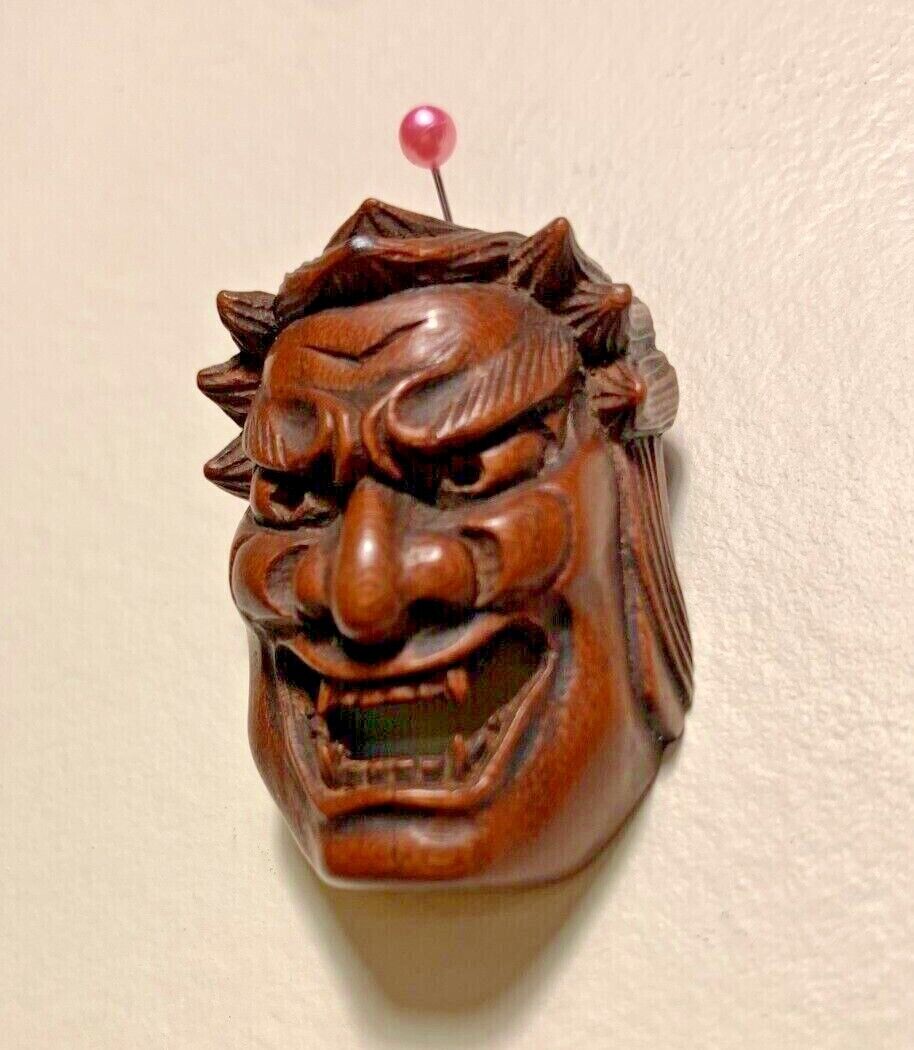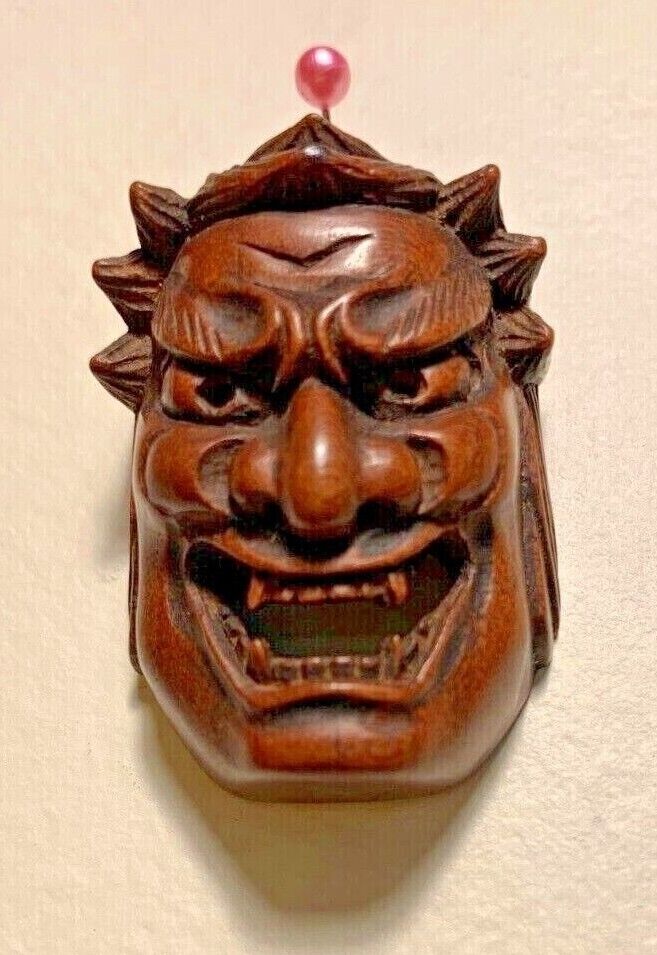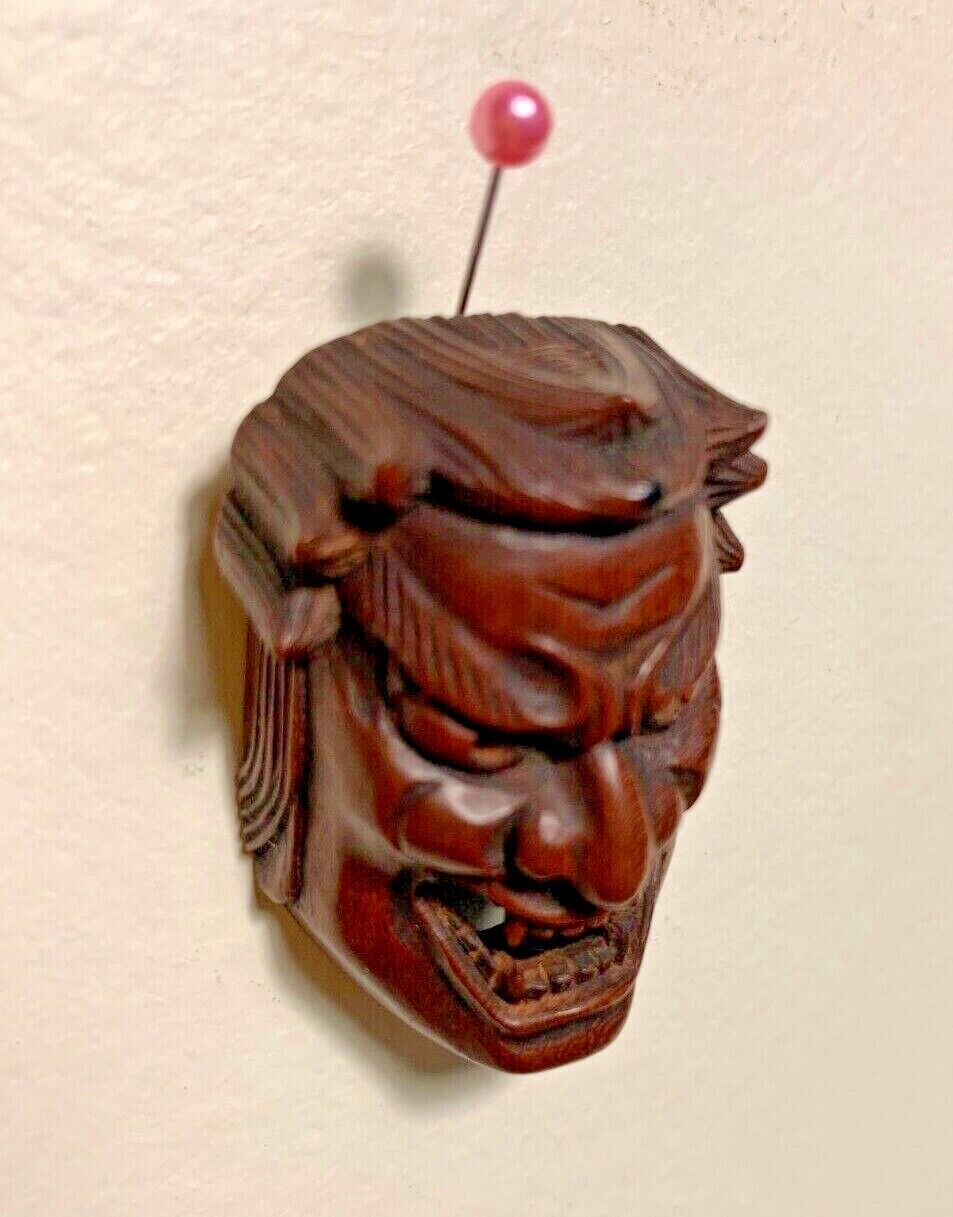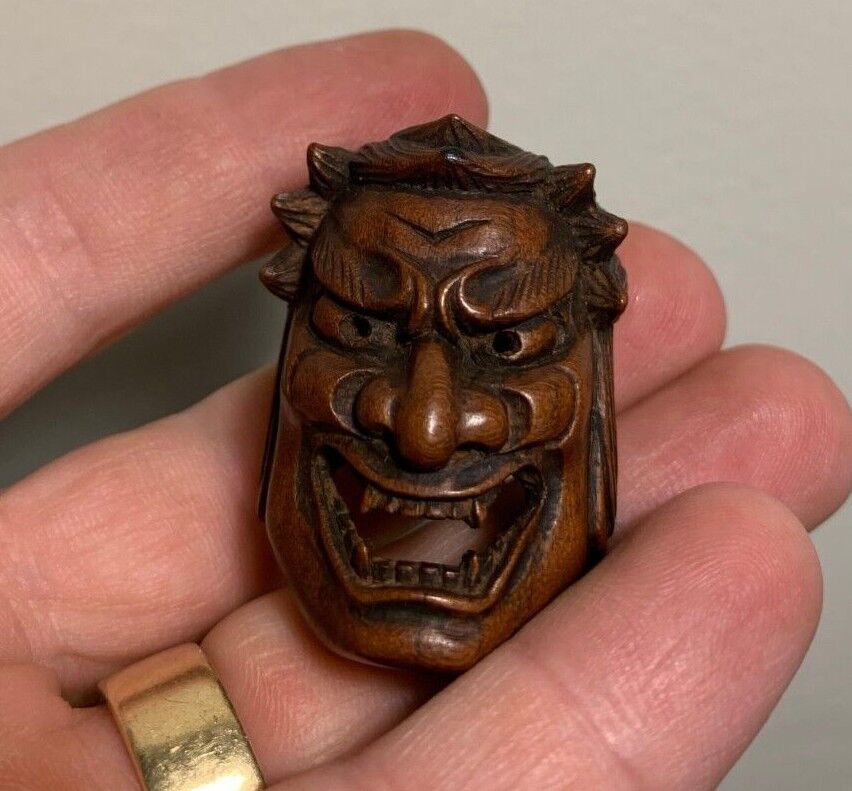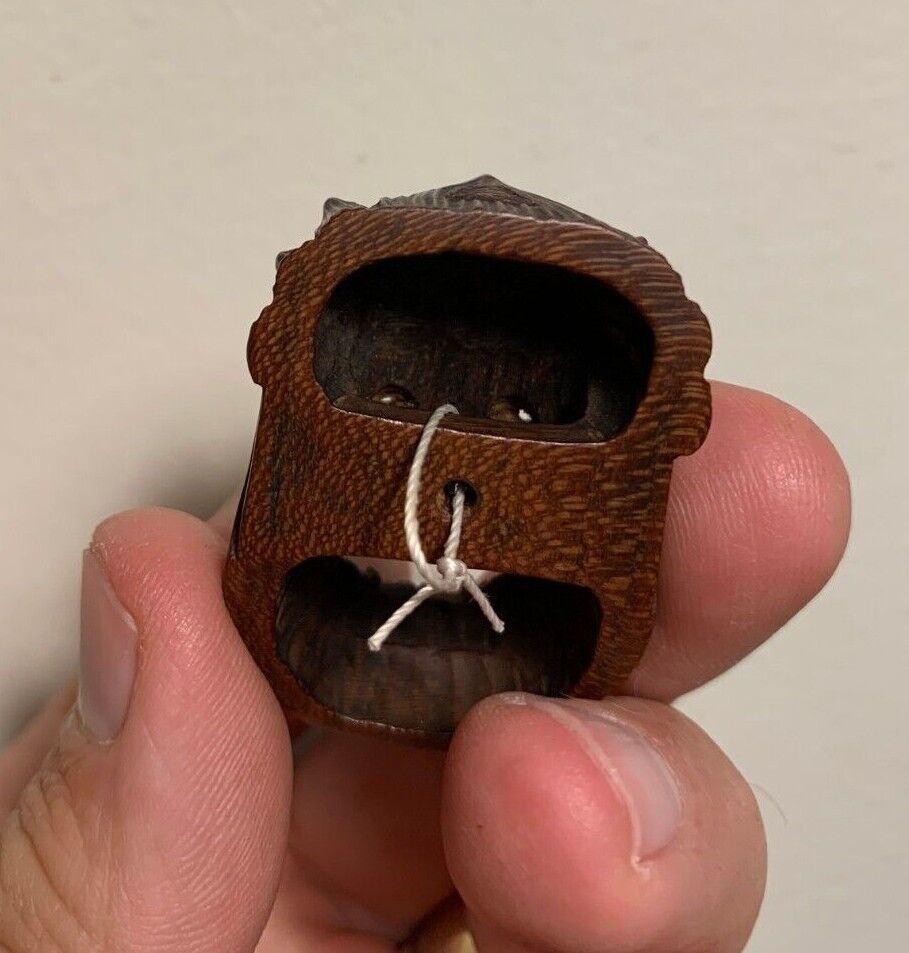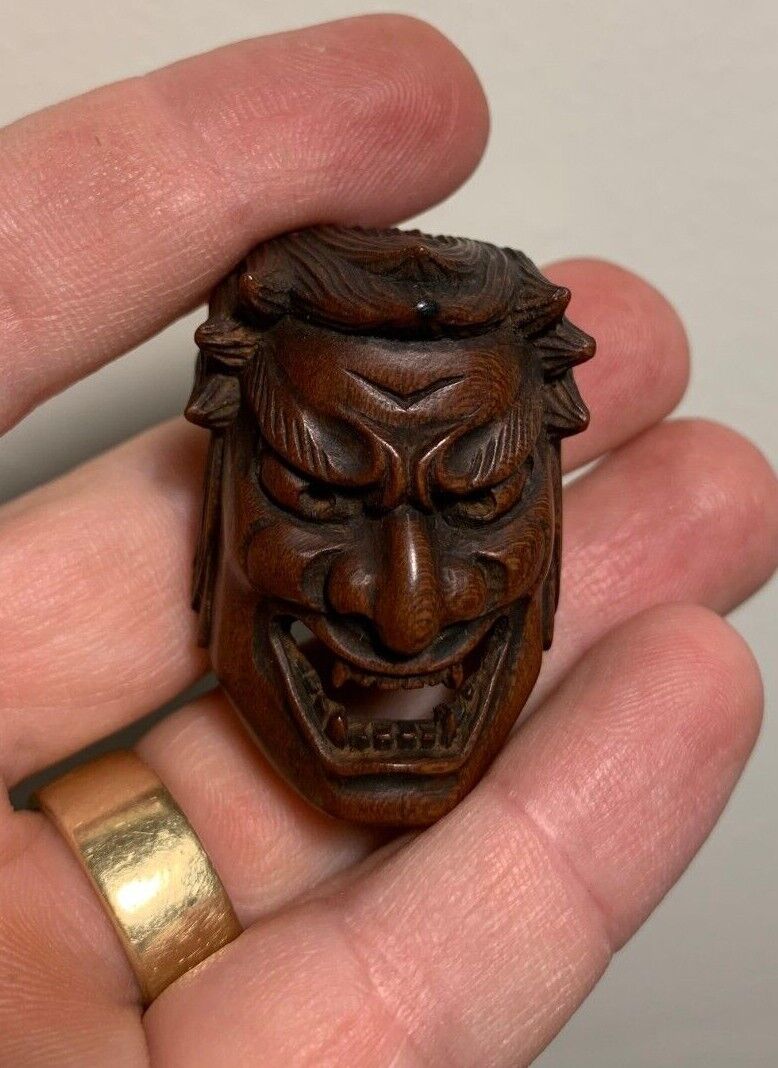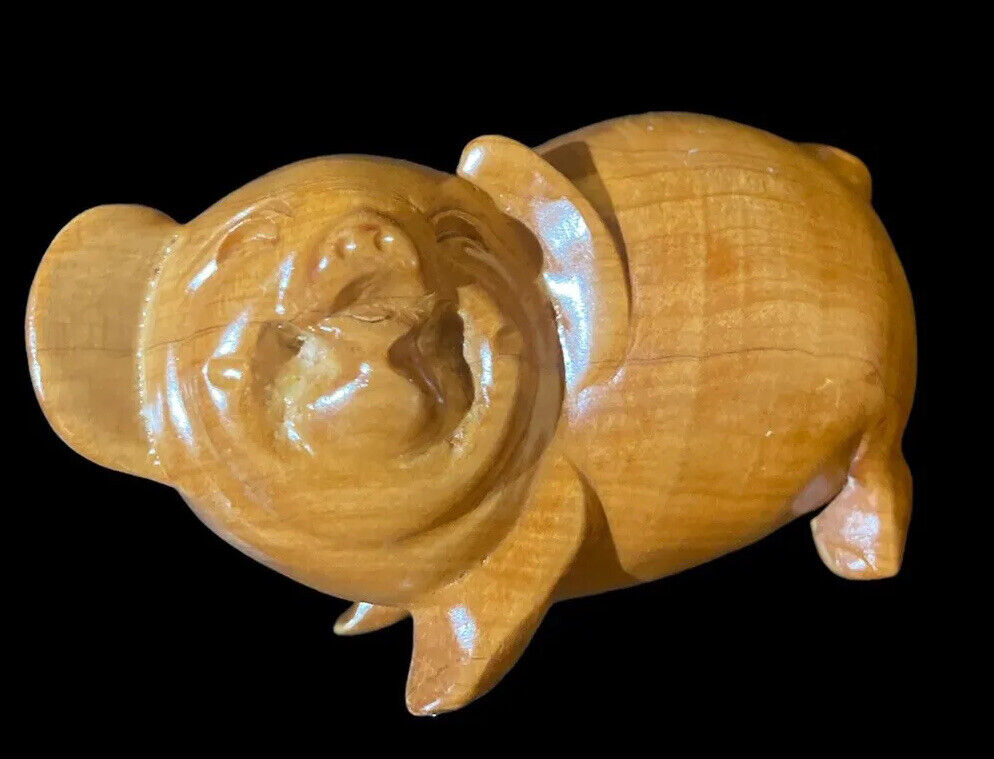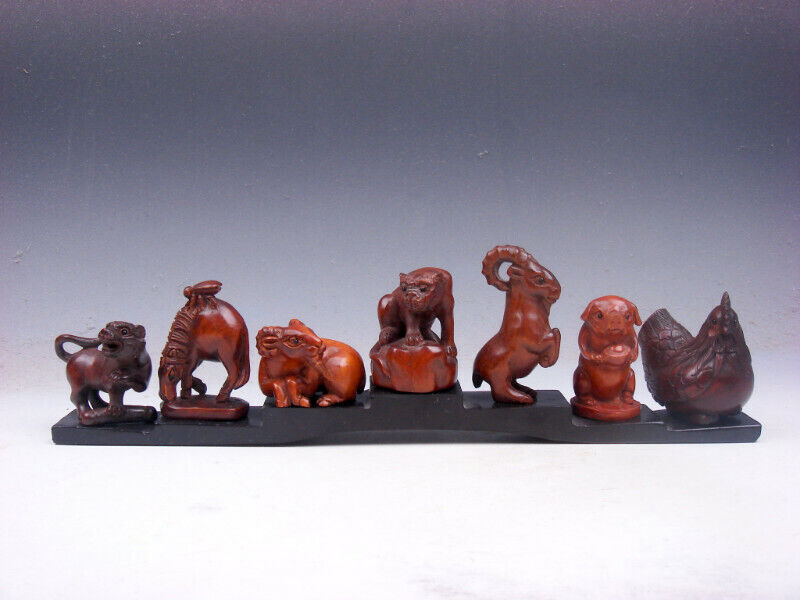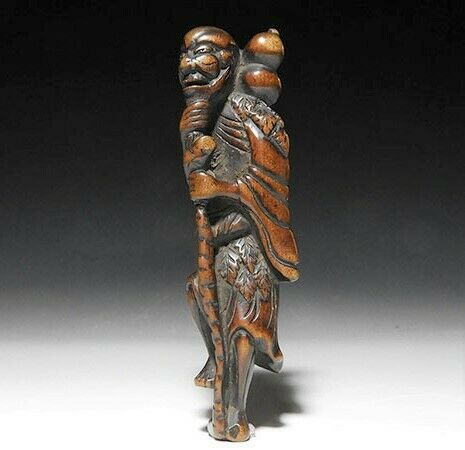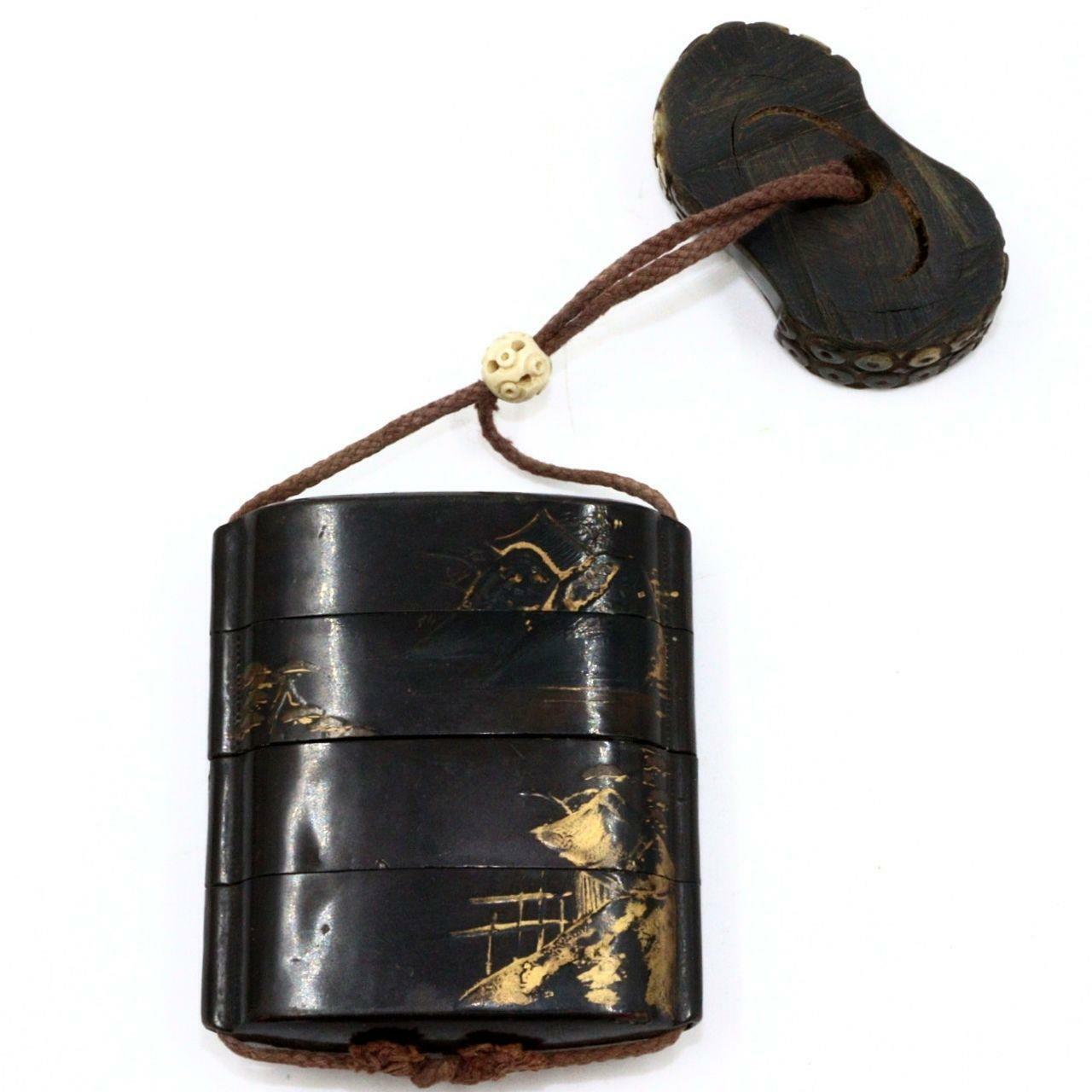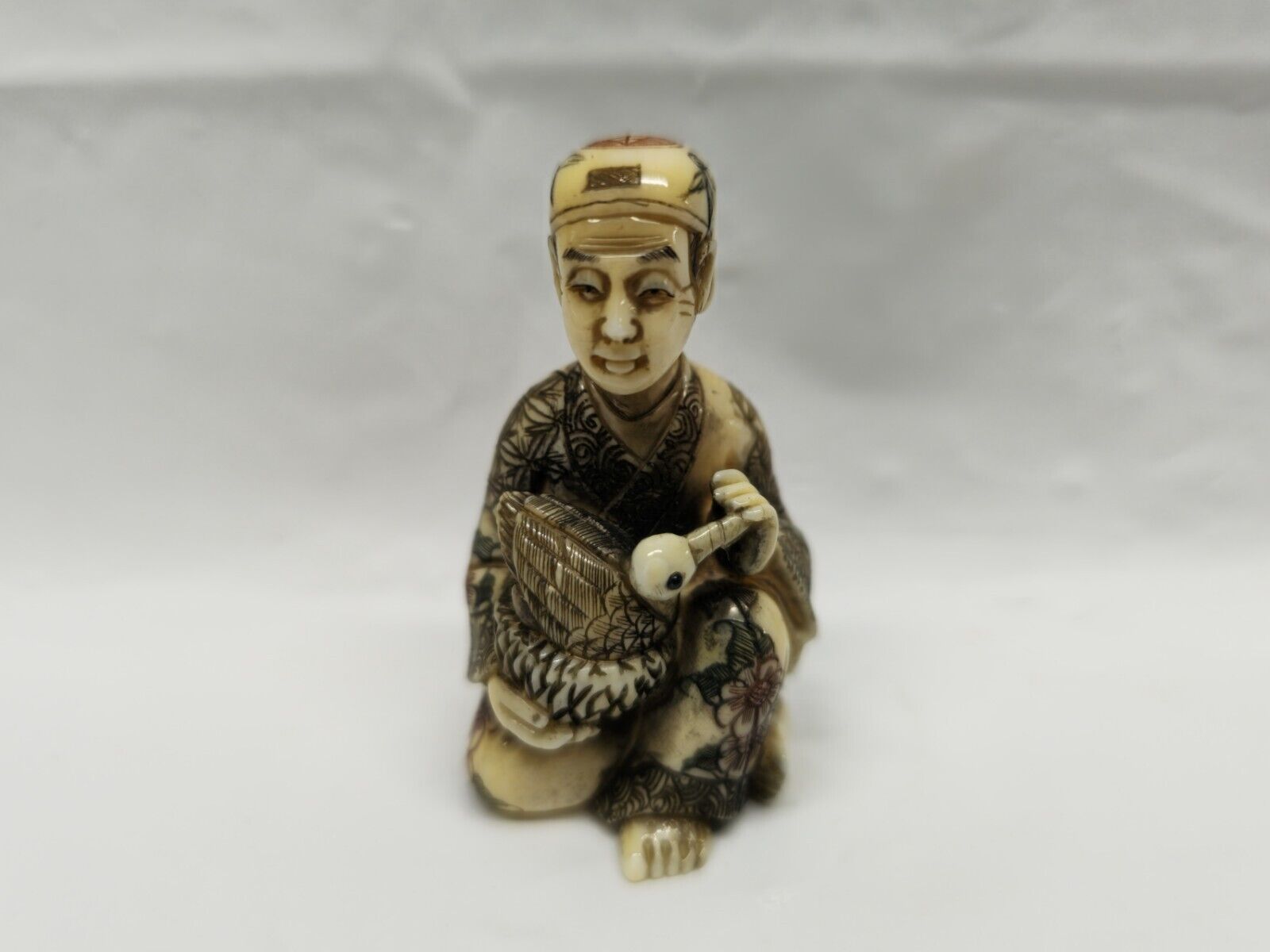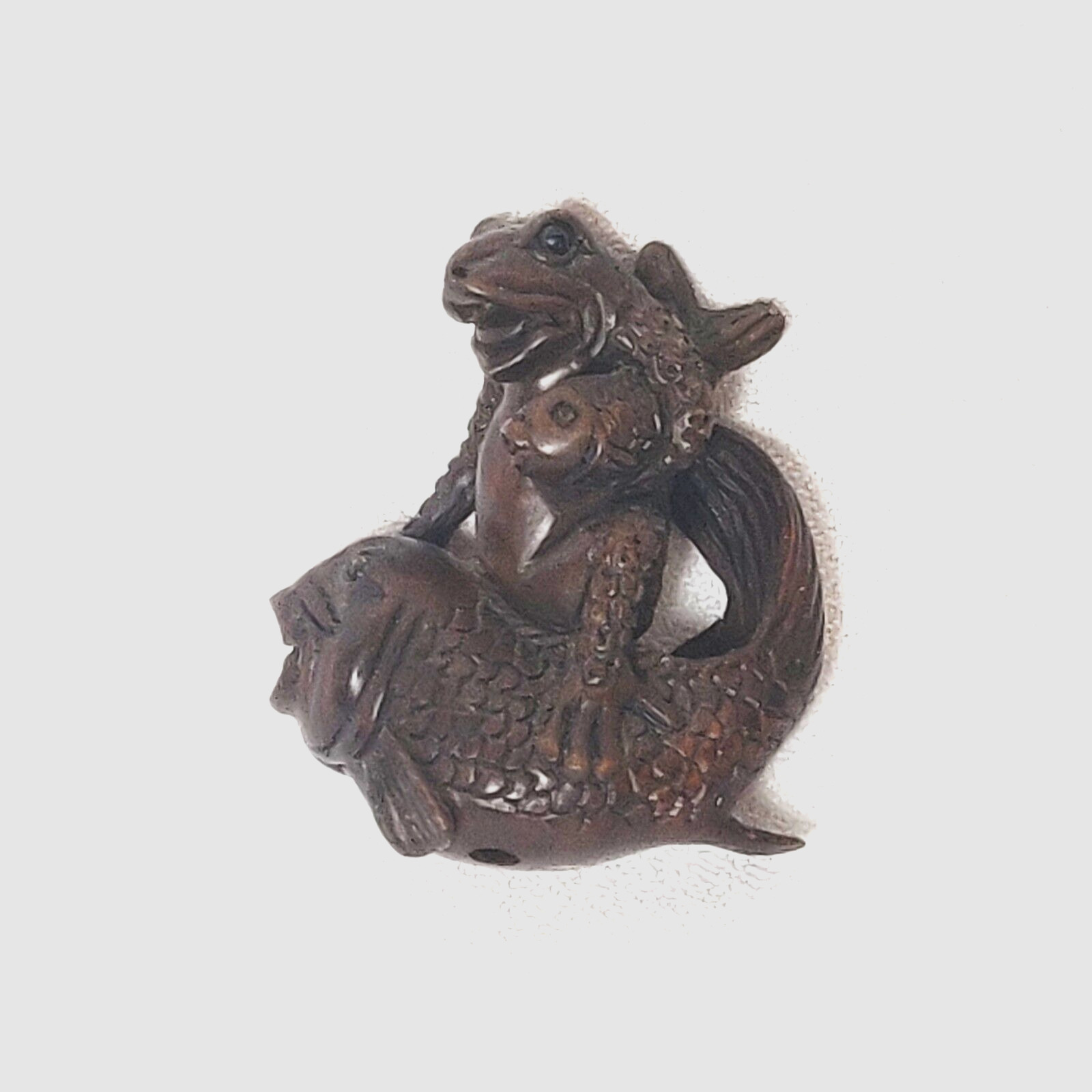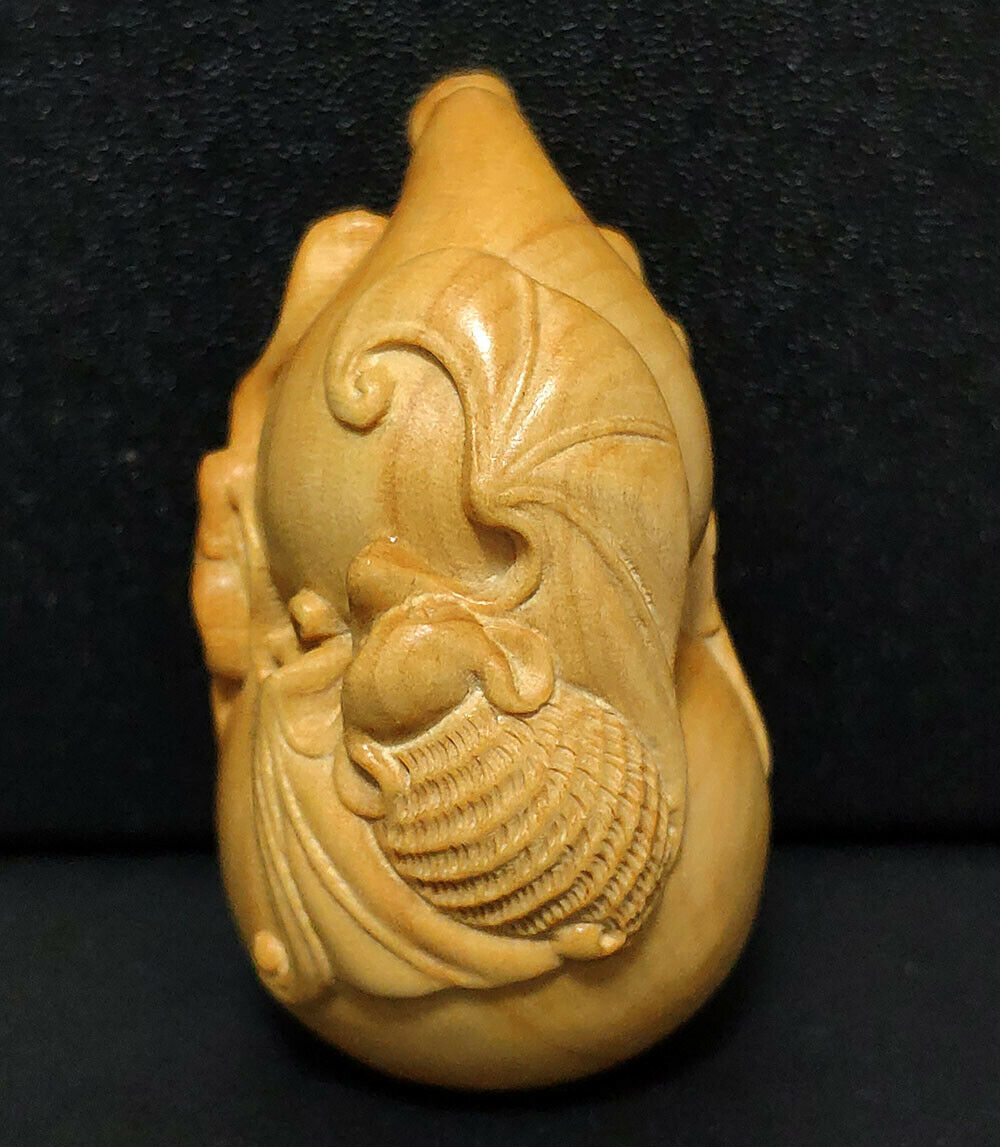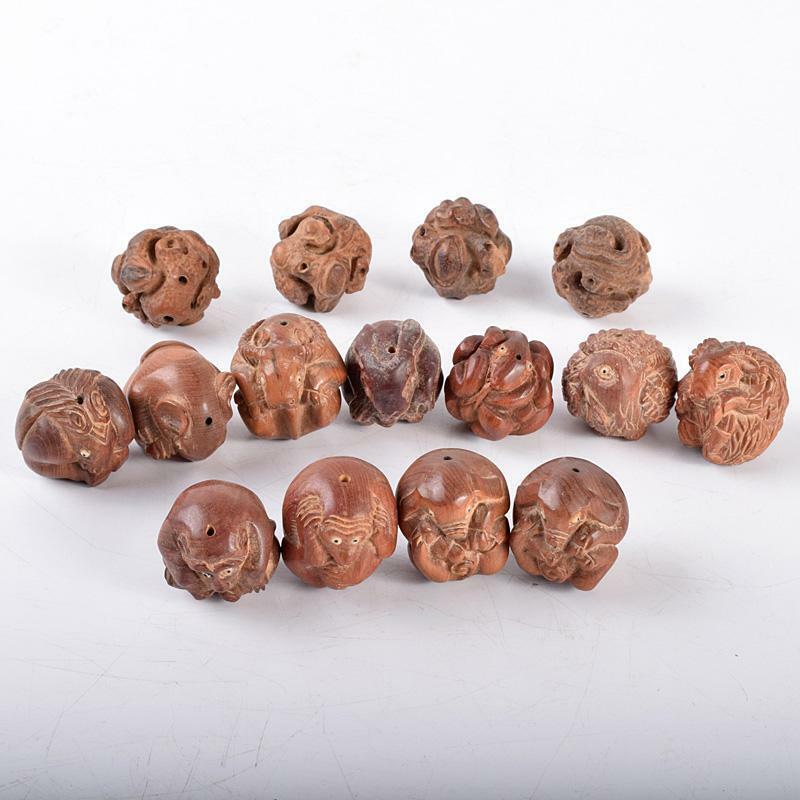-40%
Antique Wood/Wooden Netsuke Mask Superb Quality FINE Details Fudō Myōō (Acala)!
$ 1127.28
- Description
- Size Guide
Description
Superb quality and fine details!Rare to find netsuke of this quality and fine craftsmanship...stunning.
See sizing relative to the
standard
push-pin-head that is holding this on the wall. (Thread is a more recent addition for hanging sake)
4.2 cm x 2.8 cm
The first few photos are slightly overexposed to showcase all the fine details; the later photos are more true to its dark, rich, patina and wood color.
From the Edo Period (
1603-1868)
I package well and ship out daily!
Character is Fudō Myōō (or Acala)...
Fudo Myo-o, a Japanese deity (also know as Acala), the God of Fire, a manifestation of the central sun (Vairocana), a fierce God of Indian origin although neither a Buddha nor Bodhisattva. A male, he is usually portrayed as livid blue in color with a terrible facial expression standing or sitting on a rock surrounded by flames, gripping a sword in the right hand, a rope in the left, teeth bared and with angry eyes. He is an important ancient Japanese deity (considered a guardian of Buddhism), revered by Buddhists, especially by the Shingon sect of Esoteric Buddhism (Mikkyo), this branch of Buddhism being a religious practice of many Japanese Samurai in feudal times whose fierce face and inner calmness and strength were attributes highly prized.
Fudo is a Japanese term often used in Buddhism, especially in Zen and Esoteric Buddhism (Mikkyo) to represent a mental state -- one of immovability, not physically or literally, but in mind, one that is not captured, or moved, or dwells, or loiters on a thought or in a focus - a total unobstructed awareness and focus on everything, thus not moving with, or fixed upon something (limited by a focused attention).
Using the "fudo" root, other related terms include "fudo-chi," meaning immovable spirit or wisdom that can't be influenced, or confused, "fudotai" or immovable body, and "fudoshise" or immovable stance and "fudo-dachi" or "immovable stance" also sometimes referred to as a "preparation stance" (as in the initial and final stance in kata, one that allows the participant freedom of movement and action in any direction).
In the martial arts the character "shin," meaning spirit, heart or will, is often added to the root "fudo" to become "fudoshin," a term meaning calm spirit, even when faced with danger, without fear or confusion, that does not dwell or become fixed on anything. This was the highest attainment of spiritual skill only attainable when the mind is totally focused on the totality of sensory input and free of thoughts and emotions - detached but aware and present. A related term "mushin" also is often used to mean "without mind" (not occupied by thought or emotion).
Many Japanese Samurai practiced Esoteric Buddhism (Mikkyo), especially revering the deity Fudo Myo-o. They saw themselves as guardians of order in a nation besieged with disorder just as Fudo Myo-o served as a guardian of Buddhism. Fudo Myo-o also represented the highest attainment of the Samurai state of mind -- the mind that does not move, and the body that is not unsettled even when surrounded by danger. Because of this reverence, statues and brushed images of this deity were very popular. Images of Fudo Myo-o also often adorned samurai armor and weapons.
Even today many martial artists use Zazen (seated Zen meditation), chants (some derived from Esoteric Buddhism), and other to clear, fortify and purify the mind. Standing and/or meditating under a cold waterfall is another similar practice. Morihei Ueshiba, the founder of Aikido, is famous for this practice (which he termed Misogi) of ritual purification.
The concept of "Fudo" is also important to martial artists. The famous Zen priest Takuan in his famous three part treatise titled "Fudochi Shinmyoroku" ("The Mysterious Records of Immovable Wisdom") identifies Fudo-Myo-o attributes as they apply to Japanese (Samurai) swordsmanship. He notes the Fudo Myo-o's grasp of the sword in his right hand, his body standing firmly with mind immovable (detached and not distracted), looking at something but not stopping the mind during a flow of action or combat. He warned the Samurai against stopping the mind on a particular object, emotion or thought, noting that such stopping clutters (stops) the mind, something that curtailed the performance of technique.
